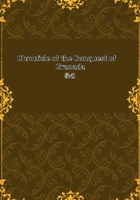
第70章
The elevation of a bold and active veteran to the throne of Granada in place of its late bedridden king made an important difference in the aspect of the war, and called for some blow that should dash the confidence of the Moors in their new monarch and animate the Christians to fresh exertions.
Don Diego de Cordova, the brave count de Cabra, was at this time in his castle of Vaena, where he kept a wary eye upon the frontier. It was now the latter part of August, and he grieved that the summer should pass away without an inroad into the country of the foe. He sent out his scouts on the prowl, and they brought him word that the important post of Moclin was but weakly garrisoned. This was a castellated town, strongly situated upon a high mountain, partly surrounded by thick forests and partly girdled by a river. It defended one of the rugged and solitary passes by which the Christians were wont to make their inroads, insomuch that the Moors, in their figurative way, denominated it the shield of Granada.
The count de Cabra sent word to the monarchs of the feeble state of the garrison, and gave it as his opinion that by a secret and rapid expedition the place might be surprised. King Ferdinand asked the advice of his councillors. Some cautioned him against the sanguine temperament of the count and his heedlessness of danger: Moclin, they observed, was near to Granada and might be promptly reinforced.
The opinion of the count, however, prevailed, the king considering him almost infallible in matters of border warfare since his capture of Boabdil el Chico.
The king departed, therefore, from Cordova, and took post at Alcala la Real, for the purpose of being near to Moclin. The queen also proceeded to Vaena, accompanied by her children, Prince Juan and the princess Isabella, and her great counsellor in all matters, public and private, spiritual and temporal, the venerable grand cardinal of Spain.
Nothing could exceed the pride and satisfaction of the loyal count de Cabra when he saw the stately train winding along the dreary mountain-roads and entering the gates of Vaena. He received his royal guests with all due ceremony, and lodged them in the best apartments that the warrior castle afforded.
King Ferdinand had concerted a wary plan to ensure the success of the enterprise. The count de Cabra and Don Martin Alonso de Montemayor were to set forth with their troops so as to reach Moclin by a certain hour, and to intercept all who should attempt to enter or should sally from the town. The master of Calatrava, the troops of the grand cardinal, commanded by the count of Buendia, and the forces of the bishop of Jaen, led by that belligerent prelate, amounting in all to four thousand horse and six thousand foot, were to set off in time to co-operate with the count de Cabra, so as to surround the town. The king was to follow with his whole force and encamp before the place.
And here the worthy padre Fray Antonio Agapida breaks forth into a triumphant eulogy of the pious prelates who thus mingled personally in these scenes of warfare. As this was a holy crusade (says he), undertaken for the advancement of the faith and the glory of the Church, so was it always countenanced and upheld by saintly men; for the victories of their most Catholic majesties were not followed, like those of mere worldly sovereigns, by erecting castles and towers and appointing alcaydes and garrisons, but by the founding of convents and cathedrals and the establishment of wealthy bishoprics. Wherefore their majesties were always surrounded in court or camp, in the cabinet or in the field, by a crowd of ghostly advisers inspiriting them to the prosecution of this most righteous war. Nay, the holy men of the Church did not scruple, at times, to buckle on the cuirass over the cassock, to exchange the crosier for the lance, and thus with corporal hands and temporal weapons to fight the good fight of the faith.
But to return from this rhapsody of the worthy friar. The count de Cabra, being instructed in the complicated arrangements of the king, marched forth at midnight to execute them punctually. He led his troops by the little river that winds below Vaena, and so up to the wild defiles of the mountains, marching all night, and stopping only in the heat of the following day to repose under the shadowy cliffs of a deep barranca, calculating to arrive at Moclin exactly in time to co-operate with the other forces.
The troops had scarcely stretched themselves on the earth to take repose, when a scout arrived bringing word that El Zagal had suddenly sallied out of Granada with a strong force, and had encamped in the vicinity of Moclin. It was plain that the wary Moor had received information of the intended attack. This, however, was not the idea that presented itself to the mind of the count de Cabra. He had captured one king; here was a fair opportunity to secure another. What a prisoner to deliver into the hands of his royal mistress! Fired with the thoughts, the good count forgot all the arrangements of the king; or rather, blinded by former success, he trusted everything to courage and fortune, and thought that by one bold swoop he might again bear off the royal prize and wear his laurels without competition.* His only fear was that the master of Calatrava and the belligerent bishop might come up in time to share the glory of the victory; so, ordering every one to horse, this hot-spirited cavalier pushed on for Moclin without allowing his troops the necessary time for repose.
*Mariana, lib. 25, c. 17; Abarca, Zurita, etc.